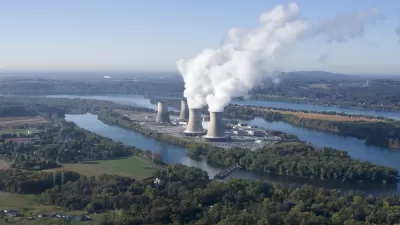With the turnover of leadership in the Senate to Republicans in January, the only Keystone question was whether advocates had enough votes to override a promised presidential veto. Turned out they were unable to overcome the first filibuster of 2015.
Sixty votes were required to overcome a Senate filibuster by opponents of authorizing construction of the controversial pipeline without presidential approval. Opponents had the weather in their favor, plus disenchantment with the cutoff of debate, according to Elana Schor, an energy reporter for POLITICO Pro, focusing on oil and gas.
A pair of 53-39 votes against ending debate on Keystone might have reached the 60-vote threshold they needed, however, had two absent pro-pipeline Democrats voted with the GOP Monday night, and winter storms not prevented some Republicans from reaching Washington.
In fact, the prior vote on Nov. 18, 2014, when Democrats controlled the Senate, was much closer.
On a 59 to 41 roll call, [former Sen. Mary] Landrieu’s [D-La] campaign fell one vote shy of passing legislation meant to force President Obama to approve the nearly 1,700-mile, $7.6 billion project, which would deliver 830,000 barrels of oil a day from western Canada to the American heartland. With just 14 Democrats backing it, Landrieu’s bill fell victim to a filibuster by her own party. All 45 Republicans voted for the measure.
While absenteeism may have lost the vote for new Majority Leader Mitch McConnell (R-Ky.), Democrats have also pushed him "to continue the freewheeling energy debate on the floor that has delved into topics ranging from climate change to eminent domain," writes Schor.
The Keystone bill’s future now may depend on whether the Senate Energy and Natural Resources Committee’s leaders, Chairwoman Lisa Murkowski (R-Alaska) and Sen. Maria Cantwell (D-Wash.), can hammer out an agreement for more amendment votes that satisfies the bill’s Democratic supporters.
As it turns out, a Senate vote may not be needed to force the president's hand on making a decision whether to authorize or reject the pipeline.
On Feb. 2, the Obama administration’s years-long review of a border-crossing permit for the Alberta-to-Texas pipeline enters its next stage as agencies such as EPA and the Interior Department face a deadline for commenting on the State Department’s finding that Keystone is unlikely to have a significant environmental impact.
PoliticusUSA owner Jason Easley adds that "(t)he bill to authorize the construction of the pipeline will eventually pass, but Democrats are sending a message to McConnell and the Republicans that they are going to hold McConnell to his word that the Senate will be run by an open process."
Hat tips to Alex Guillen and Darren Goode of Politico Morning Energy.
FULL STORY: Keystone votes fail in Senate

Alabama: Trump Terminates Settlements for Black Communities Harmed By Raw Sewage
Trump deemed the landmark civil rights agreement “illegal DEI and environmental justice policy.”

Planetizen Federal Action Tracker
A weekly monitor of how Trump’s orders and actions are impacting planners and planning in America.

The 120 Year Old Tiny Home Villages That Sheltered San Francisco’s Earthquake Refugees
More than a century ago, San Francisco mobilized to house thousands of residents displaced by the 1906 earthquake. Could their strategy offer a model for the present?

Ken Jennings Launches Transit Web Series
The Jeopardy champ wants you to ride public transit.

BLM To Rescind Public Lands Rule
The change will downgrade conservation, once again putting federal land at risk for mining and other extractive uses.

Indy Neighborhood Group Builds Temporary Multi-Use Path
Community members, aided in part by funding from the city, repurposed a vehicle lane to create a protected bike and pedestrian path for the summer season.
Urban Design for Planners 1: Software Tools
This six-course series explores essential urban design concepts using open source software and equips planners with the tools they need to participate fully in the urban design process.
Planning for Universal Design
Learn the tools for implementing Universal Design in planning regulations.
Clanton & Associates, Inc.
Jessamine County Fiscal Court
Institute for Housing and Urban Development Studies (IHS)
City of Grandview
Harvard GSD Executive Education
Toledo-Lucas County Plan Commissions
Salt Lake City
NYU Wagner Graduate School of Public Service



























